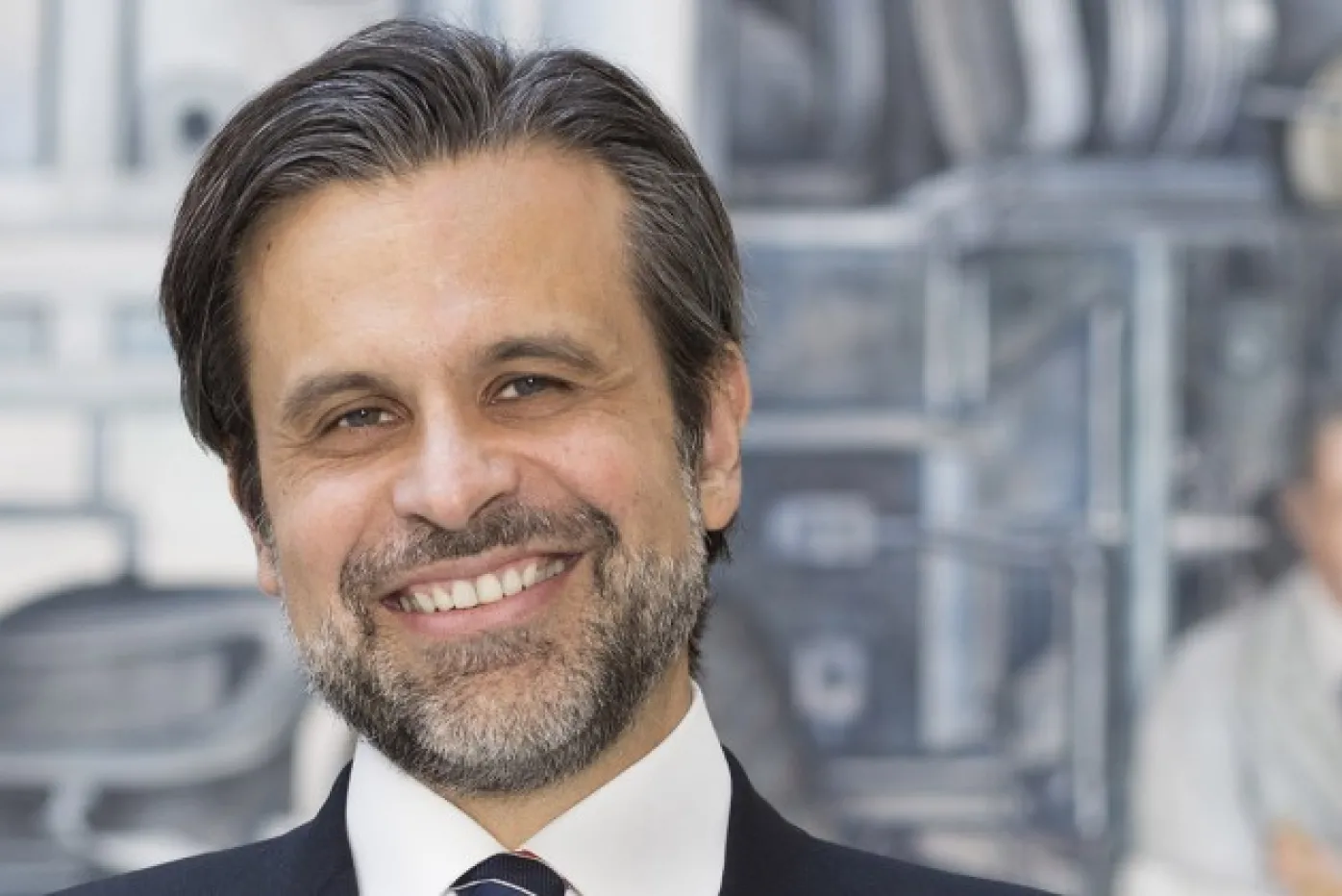From the Director, June 2018
Updated Jul 20, 2022
Deepening our relationship with the community
Many have lost confidence in the pillars of American civic identity: media, businesses, institutions of the government, among others. But museums and cultural organizations can help re-build confidence in those institutions and trust in society. Furthermore, museums provide our citizens with tools that help them be better prepared for their ever-evolving lives.
During my twenties and early thirties, I was very fortunate to dedicate my time doing research in historical archives and libraries in Italy, Spain and other countries. As a trained art historian, I am familiar with historical factual information and how we interpret it to objectively write our history. Historians are like today’s news reporters, though instead, we cover the events of the past. When I began my career as a museum curator, museums were seen as organizations that collected, preserved, displayed, and researched works of art, then educated the visitor about the information emerging from that work. The art object was the center of the museum’s focus, and the facts related to it helped write the narrative of our artistic culture. Over time, particularly in recent years, cultural organizations have strengthened their relevance in our society. They are the keepers of our history and culture, and through scholarly research and interpretation they help shape our social identity, an authentic point of reference that people can trust. In fact, research shows that museums are some of the most trusted institutions in the U.S. and around the world, well above government institutions, businesses and the media.
But museums are becoming more than just buildings that house art collections and treasure facts. Our art collections are platforms on which we present and discuss matters with which communities wrestle, or by which they are inspired or simply enjoy. In the museum space, we welcome opportunities to hear multiple perspectives, the different views of the world that emerge from experiencing our art collection and the meanings they spark for individuals. Understanding how others think, learning how to listen, and creating a space for empathy, energized by the power of art, are some of the greatest opportunities museums can offer our audiences.
In our daily work, we go beyond the walls of our buildings. We establish lines of dialogue with our communities, deepening our relationships with them and generating authentic bonds, as we serve them with programs that resonate with their interests while maintaining a museum-quality product. The result is an environment of trust and unity in which our society can thrive. Museums not only create trust in our communities but also provide citizens with tools with which they can be better prepared in their lives. Thanks to our exhibitions and programs we help our students, seniors, general visitors and others enhance their critical thinking skills. Furthermore, we also provide them with opportunities to expand their creativity, making them into active problem solvers. After they leave our building, they are better equipped to face the challenges of life and make better choices.
Museums are places for union. We bring people together. In a recent speech on Mackinac Island, Governor Snyder pointed out that in our current society, where trust is at stake, it is important for our communities to do things together, help each other, so we can establish bonds of trust among different people. What better place to do things together than in a museum? Museums ̶ and their collections ̶ can be mirrors where communities of different origins and backgrounds see themselves reflected and represented.
Think about Detroit’s Midtown and our cultural district. The organizations there provide trustworthy information about the arts, science, history and other fields. They are all working together to create a town square, a plaza, where we can provide an environment of honesty, openness and equity. It is in this space where we want to see communities with different backgrounds and opinions come together to have the necessary conversations and come to a new understanding. In this sense, these organizations are becoming not only a tool to help build confidence in our society, but also and more importantly, the space where we can nurture the individuals who will be the leaders of our future government, media and businesses that will trust and represent us.

DIA Director, Salvador Salort-Pons in Rivera Court
Deepening our relationship with the community
Many have lost confidence in the pillars of American civic identity: media, businesses, institutions of the government, among others. But museums and cultural organizations can help re-build confidence in those institutions and trust in society. Furthermore, museums provide our citizens with tools that help them be better prepared for their ever-evolving lives.
During my twenties and early thirties, I was very fortunate to dedicate my time doing research in historical archives and libraries in Italy, Spain and other countries. As a trained art historian, I am familiar with historical factual information and how we interpret it to objectively write our history. Historians are like today’s news reporters, though instead, we cover the events of the past. When I began my career as a museum curator, museums were seen as organizations that collected, preserved, displayed, and researched works of art, then educated the visitor about the information emerging from that work. The art object was the center of the museum’s focus, and the facts related to it helped write the narrative of our artistic culture. Over time, particularly in recent years, cultural organizations have strengthened their relevance in our society. They are the keepers of our history and culture, and through scholarly research and interpretation they help shape our social identity, an authentic point of reference that people can trust. In fact, research shows that museums are some of the most trusted institutions in the U.S. and around the world, well above government institutions, businesses and the media.
But museums are becoming more than just buildings that house art collections and treasure facts. Our art collections are platforms on which we present and discuss matters with which communities wrestle, or by which they are inspired or simply enjoy. In the museum space, we welcome opportunities to hear multiple perspectives, the different views of the world that emerge from experiencing our art collection and the meanings they spark for individuals. Understanding how others think, learning how to listen, and creating a space for empathy, energized by the power of art, are some of the greatest opportunities museums can offer our audiences.
In our daily work, we go beyond the walls of our buildings. We establish lines of dialogue with our communities, deepening our relationships with them and generating authentic bonds, as we serve them with programs that resonate with their interests while maintaining a museum-quality product. The result is an environment of trust and unity in which our society can thrive. Museums not only create trust in our communities but also provide citizens with tools with which they can be better prepared in their lives. Thanks to our exhibitions and programs we help our students, seniors, general visitors and others enhance their critical thinking skills. Furthermore, we also provide them with opportunities to expand their creativity, making them into active problem solvers. After they leave our building, they are better equipped to face the challenges of life and make better choices.
Museums are places for union. We bring people together. In a recent speech on Mackinac Island, Governor Snyder pointed out that in our current society, where trust is at stake, it is important for our communities to do things together, help each other, so we can establish bonds of trust among different people. What better place to do things together than in a museum? Museums ̶ and their collections ̶ can be mirrors where communities of different origins and backgrounds see themselves reflected and represented.
Think about Detroit’s Midtown and our cultural district. The organizations there provide trustworthy information about the arts, science, history and other fields. They are all working together to create a town square, a plaza, where we can provide an environment of honesty, openness and equity. It is in this space where we want to see communities with different backgrounds and opinions come together to have the necessary conversations and come to a new understanding. In this sense, these organizations are becoming not only a tool to help build confidence in our society, but also and more importantly, the space where we can nurture the individuals who will be the leaders of our future government, media and businesses that will trust and represent us.

